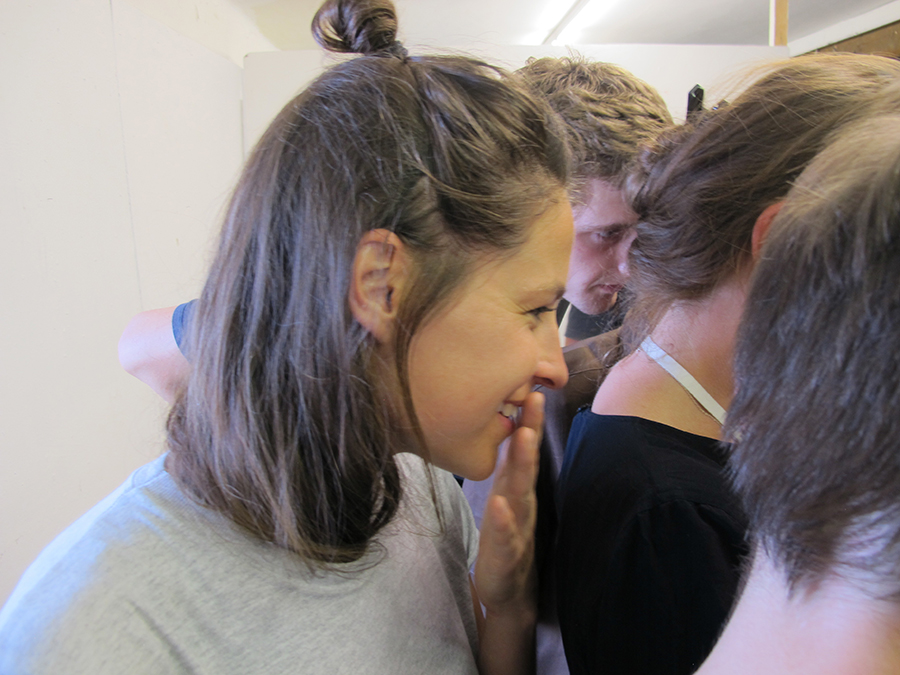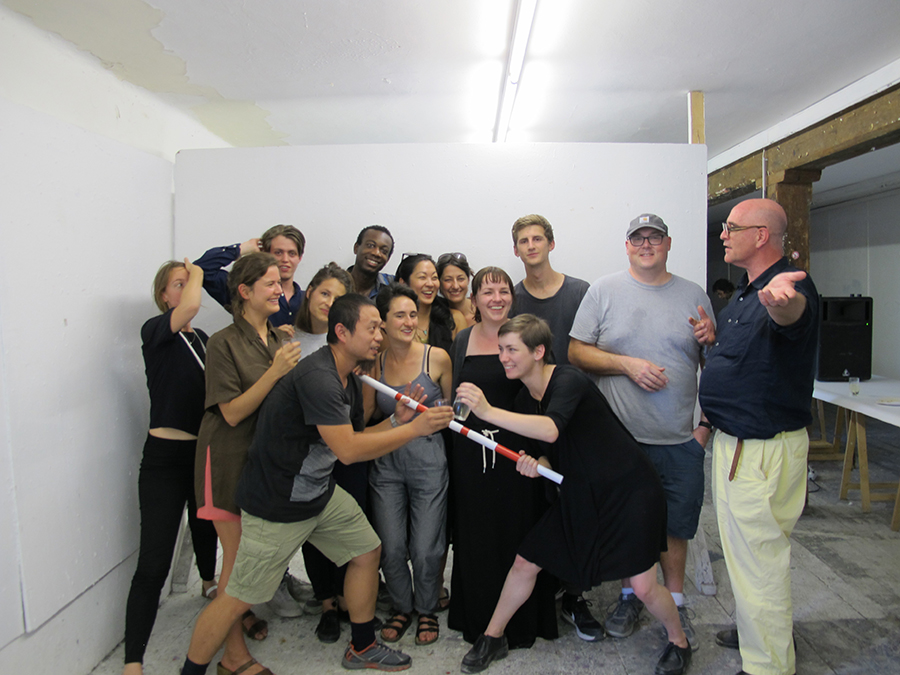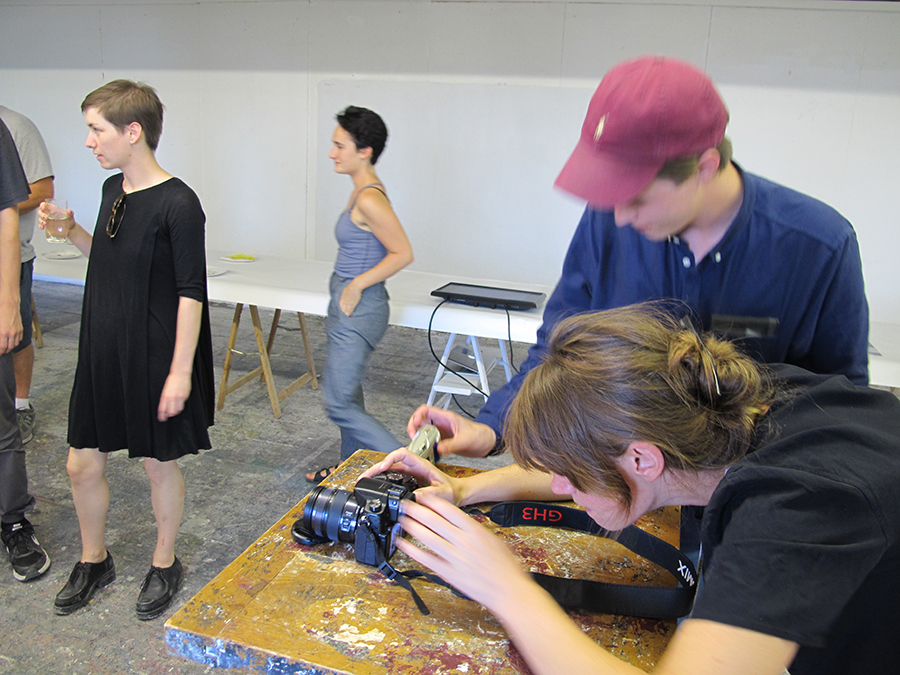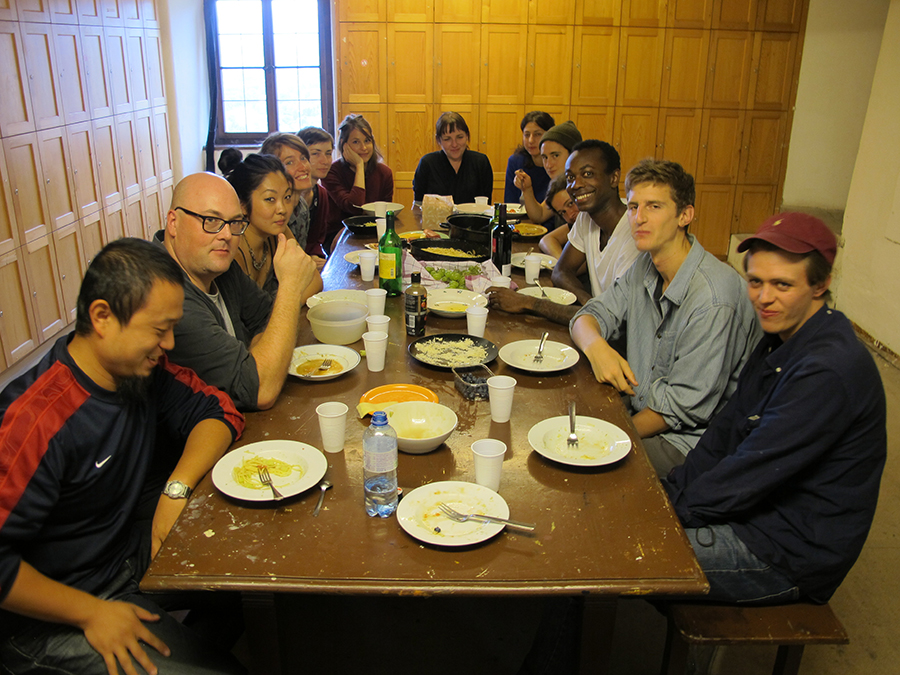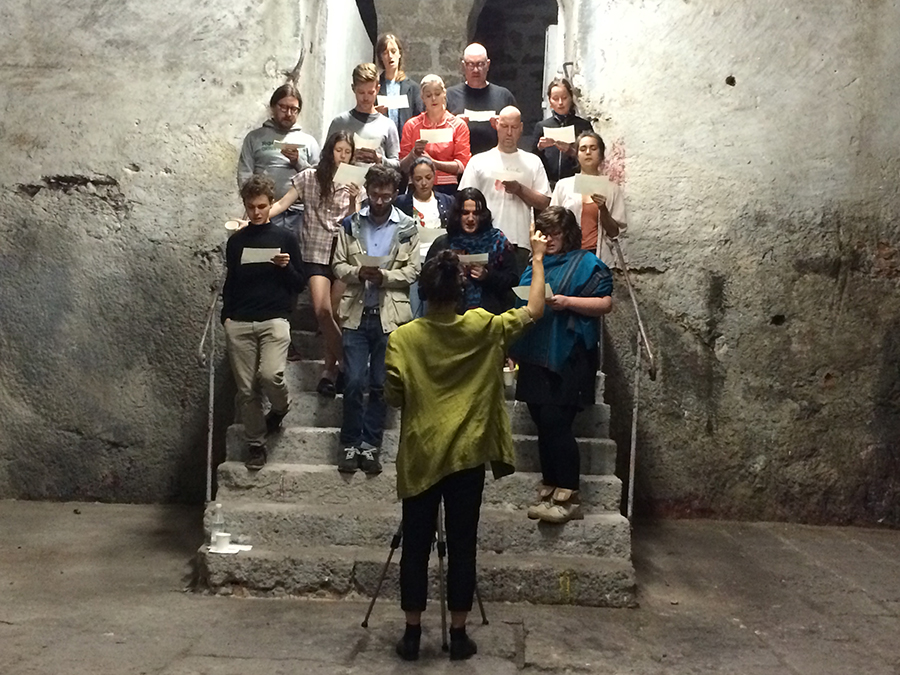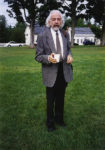
Vermont College of Fine Arts, MFA Program
Ashford was hired as an instructor at the Vermont College MFA in Visual Arts program in 1991. The program was founded by G Roy Levin the year before and established a structure of process-oriented low residency education – that at the time was a revolutionary break from traditional programs. The program rejected the historical burden of mastery-based professionalization in order to allow students to find their own tactical relationships to making art as an autonomous and institutional re-defining occupation. Institutional decision were made through collective decision by the resident faculty, including Faith Wilding, Steve Kurtz, Humberto Ramirez, Miwon Kwon, Claire Pentecost, and Gregg Bordowitz. After G Roy’s retirement in 2000, Ashford became faculty chair and worked to re-design the artists-lecture format to include participatory project based experiences, student initiated instruction, greater involvement by off campus artist-mentors and other changes. He left the program in 2004 in order to address the growing demands of his studio output and the developing changes at The Cooper Union.
“Notes on the Pedagogical Importance of Failure” from: Education, Information, Entertainment. Ute Meta Baur, ed., Editions Selene, Vienna, 2001 _(link)
Founder G Roy Levin’s graduation speech _(link)
Documentation of Ashford’s revisiting VC MFA as mentor for Nadia Martinez in 2020 _(link)












